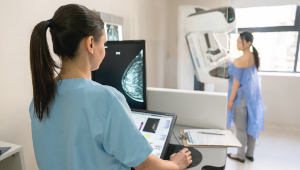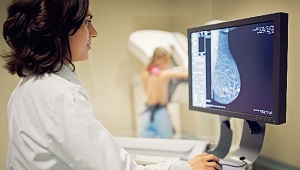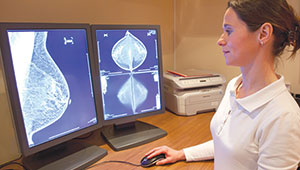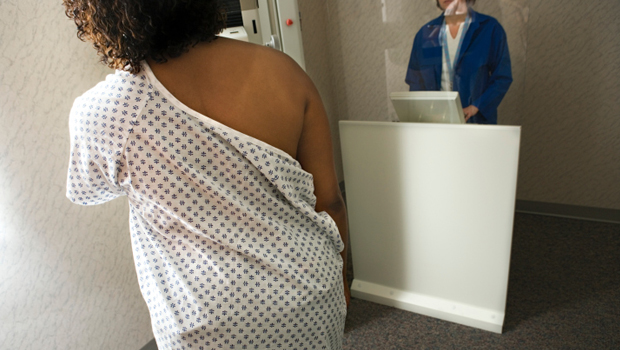- Our Research
- Research Areas
- Addictions
- Aging & Geriatrics
- Behavior Change
- Biostatistics
- Cancer
- Cardiovascular Health
- Child & Adolescent Health
- Chronic Illness Management
- Health Informatics
- Health Services & Economics
- Healthy Communities
- Medication Use & Patient Safety
- Mental Health
- Obesity
- Preventive Medicine
- Social Determinants of Health
- Vaccines & Infectious Diseases | COVID-19
- Our Scientists
- Collaborate with Us
- Our Publications
- Research Funding Sources
- Research Areas
- News and Events
- Get Involved
- About Us
- Live Healthy
All Articles on Mammography
- Race, income, education affect access to 3D mammography
The technology’s potential benefits to detect breast cancer earlier are not equally shared among all women, researchers find.
- Artificial intelligence: Aiding, not replacing radiologists
A $1 million challenge using Kaiser Permanente data shows how AI can assist in breast cancer screening.
- Few benefits seen for ultrasonograms for women with dense breasts
Dense breasts are a risk factor for breast cancer, and the more dense breasts are, the more difficult it can be to detect cancer on mammograms. Many state regulations have been enacted—and more proposed—requiring health providers to tell women if their mammogram shows their breasts are dense.
- How can radiologists detect breast cancer more accurately?
Research suggests having radiologists do diagnostic workups of some of their own recalled cases can help improve accuracy.
- Digital mammograms have raised costs with only small health benefits
The trend toward digital mammograms was given a mixed report card in the study Benefits, Harms, and Costs for Breast Cancer Screening After U.S. Implementation of Digital Mammography e-published on May 28 in the Journal of the National Cancer Institute.
- Biennial mammograms best for ages 50–74, even with dense breasts
Screening for breast cancer every two years appears just as beneficial as yearly mammograms for women age 50–74, with significantly fewer “false positives”—even for women whose breasts were dense or who used hormone therapy for menopause.
- Yearly mammograms? Expect a ‘false positive’ each decade
In 10 years of annual mammograms, more than half of women without cancer will be called back at least once for more testing. And about one in 12 will be referred for a biopsy, according to a study of national Breast Cancer Surveillance Consortium data in the Annals of Internal Medicine.
Kaiser Permanente Washington Health Research Institute for:
Kaiser Permanente Washington Health Research Institute
Phone: 206-287-2900Fax: 206-287-2871
Contact us
Sign up for our newsletter
Policy on Conflict of Interest
Nondiscrimination Notice and Language Access Services
Land Acknowledgment
Our Seattle offices sit on the occupied land of the Duwamish and by the shared waters of the Coast Salish people, who have been here thousands of years and remain. Learn about practicing land acknowledgment.







